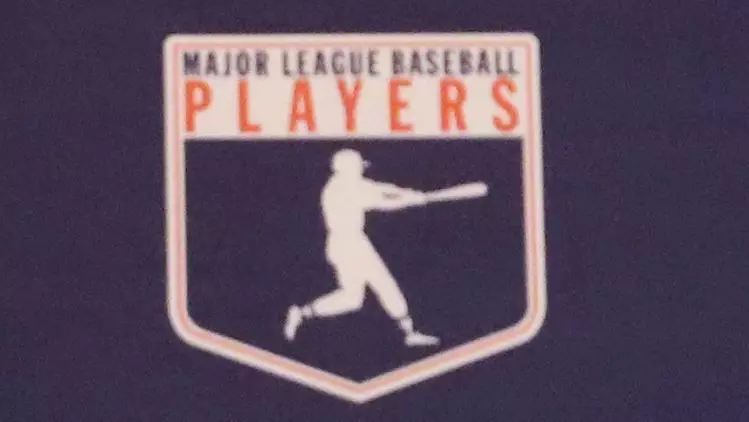In recent days, a swirling cloud of scrutiny has settled over the intersection of sports and finance, notably affecting prominent figures in Major League Baseball (MLB) and the National Football League (NFL). The FBI has made inquiries into the financial dealings surrounding a high-stakes group-licensing firm known as OneTeam Partners, co-established by the players’ unions of both leagues, amidst a backdrop of continuing discussions regarding athletes’ rights and their compensation structures. Reports indicate that at least three union-affiliated players have been contacted as part of the investigation. While the FBI’s interest does not target these players, it raises crucial questions about the integrity of financial practices within such influential sports organizations.
The probe primarily centers on OneTeam Partners, which has emerged as a significant player in negotiating media deals and amplifying athletes’ names, images, and likenesses (NIL) since its inception in 2019. The cornerstone of the inquiry seems to revolve around allegations of financial mismanagement, potential corruption, and opaque dealings within the higher echelons of both the MLB and NFL. As the layers of this complex financial interplay unravel, seemly innocuous relationships may hold far-reaching implications for the integrity of player unions.
OneTeam’s Self-Defense and Claims of Innocence
In a formal communication, OneTeam has vigorously proclaimed its innocence, asserting that it is not the focal point of the investigation. They categorically denied any wrongdoing, emphasizing their commitment to transparency and collaboration with law enforcement. Despite such assertions, the controversy seems to resonate more deeply, as players and executives involved with the organization find themselves engulfed in an atmosphere charged with suspicion and distrust.
Union leaders have expressed solidarity concerning compliance and cooperation, reinforcing their intention to engage fully should they be contacted by federal authorities. Nevertheless, it’s noteworthy that some player representatives have opted to retain independent legal counsel, signifying a heightened level of caution amid an otherwise collaborative scene. This decision may reflect a palpable undercurrent of anxiety about what this investigation could unveil—and if, when push comes to shove, they might find themselves navigating murky legal waters.
The Implications of Financial Gains
OneTeam has morphologically transformed the financial landscape for players’ unions, which now boast significant revenues and substantial assets. Backed by hefty investments from firms like RedBird Capital, OneTeam was valued at an eye-popping $1.9 billion in 2022. The organization has not only generated sizable financial returns for MLBPA and NFLPA but has also expanded its reach by incorporating players’ unions from various sports. This success interplay by itself invites scrutiny; after all, substantial financial gains often raise questions about the integrity of governance and decision-making within governing bodies.
Emerging allegations of “nepotism, corruption, and mismanagement” against MLBPA casting a shadow over Tony Clark, the executive director, accentuate concerns regarding financial governance. With complaints filed about inadequate disclosures and equity distribution, OneTeam’s practices may serve as a litmus test for ethical behavior in sports unions. The players rightfully deserve transparency in how revenues are allocated and who benefits from their collective labor.
The Financial Landscape of Athletes’ Unions
Financial performance indicators demonstrate a shift toward greater economic power for both the MLBPA and NFLPA, registering total assets in record-breaking figures. While the MLBPA flaunted over $353 million in assets, the NFLPA amassed approximately $1.4 billion. Notably, how these funds are utilized remains clouded in ambiguity, especially in light of recent controversies surrounding executive compensation. With reports affirming that Clark earned $3.5 million in 2024, questions arise about compensation equity among players versus executives leading the unions in increasingly lucrative environments.
Such disparities only fuel skepticism and raise concerns about whether the unions are genuinely prioritizing the welfare of the athletes they represent. With both unions having to navigate uncharted financial terrains—steering through a rapidly evolving marketplace—stability and ethical governance will be paramount to ensuring that athletes feel secure in their earnings and trust the institutions that represent them.
A Crossroads of Ethics and Business in Sports
As the investigation unfolds, the implications for athletes, unions, and the sports industry as a whole present a complex web of challenges. The very organizations meant to uplift player welfare and fair compensation are once again under the microscope, where claims of unethical behavior and financial scrutiny could redefine the relationship between athletes and the unions that represent their interests. In an age where financial gain is frequently juxtaposed against ethical considerations, the outcome of these inquiries can potentially reshape the very fabric of what it means to represent athletes’ interests in the professional arena.
What has become evident is that the athletes and their unions must cultivate a culture of accountability, transparency, and ethical practice if they hope to navigate this labyrinthine setting. As industry leaders are compelled to respond to these challenges, their actions in the coming months will either reinforce or erode the trust placed in them by players and fans alike. The pendulum of accountability is swinging, and the stakes have never been higher.

